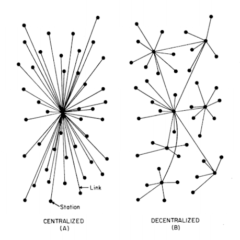Jacques Derrida, 2002
Derrida takes a look at the relationship between man and animal through discussions of Heidegger, ontology, and nudity. Derrida describes the animal as the “absolute Other”, unable to be conceived of alongside the human like a brother. The animal therefore comes before, follows, and surrounds the human, but is not adjacent to it. The discussion of nudity also touches upon Agambenesque points on evil, and nudity as the possibility of clothing. Nudity cannot be conceived for the animal because it presupposes the natural presence of clothing; their equivalent would be the donning of clothes. To be nude before the animal is to experience utter alienation through their gaze; to come across the limits of man and human experience. This point links well to the notion of the exposure of mirozdanie (world-structure) as elaborated on with relation to Leviathan (2014) and my EPQ research. Derrida makes some laughably dramatic points, however, which may be drawn simply from the experience of being naked in front of a cat; the link to the existential “apocalypse” which occurs when contemplating the eyes of the cat upon one’s body is laughable.
However, there is some genuinely original and insightful material here. Even if I do not buy Zizek’s positive review of Derrida as refraining from his circulatory, balletic style (delirious digressions are still present here), it is somewhat more accessible than his other works and links well to my previous research on nudity (see articles).
I think there is a definite point to me made about otherness with relation to animals, and the link he makes to Heidegger’s notion of pure being (Nur-lebenden). I don’t believe this is the correct interpretation, however, and looking at Sartre’s partial development of this (which discusses the “hole through being” and the perpetual reaching toward transcendence from an immanent basis) I think we can construct a more complex model of animality. The notion of nudity as recognition and the relationship of it to being is certainly interesting, though.
P R E V I E W
